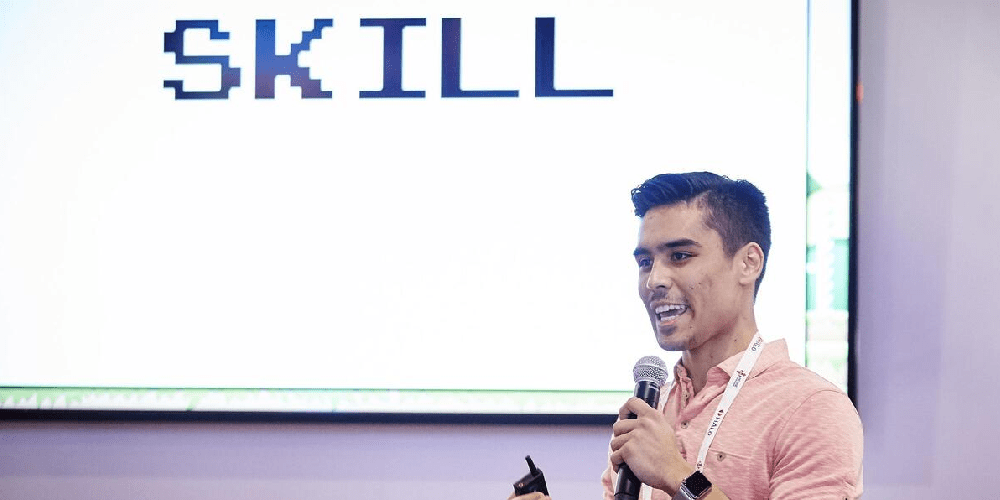G2E Panel: Developing the game developers of the future
G2E Panel: Developing the game developers of the future
One persistent obstacle for slot manufacturers has been the acquisition and retention of talent for game development studios. The challenge for students in the disciplines of engineering and mathematics has been the identification of suitable employment opportunities.
The slot suppliers in Nevada have provided some of the most stable employment opportunities in the industry. One obstacle for individuals who aspire to become game developers is that pupils under the age of 21 are not afforded the opportunity to study a significant number of games in the field. The permissible gambling age is 21 in Nevada and numerous other states.
The University of Nevada, Las Vegas (UNLV) has offered a solution for the past 12 years. It established the Centre for Gaming Innovation (CGI) at the UNLV International Gaming Institute. The dynamics of the process were illustrated during a panel discussion at the Global Gaming Expo on Monday, October 7th. It included three components: class instruction, manufacturer recruitment, and the UNLV official who facilitates the integration of these two elements.
The CGI director, Dr. Daniel Sahl, moderated the panel, which was titled "Cultivating the Next Generation of Game Manufacturers." He serves as the program's principal professor for both undergraduate and graduate courses.
The operation of the initiative
Panellists included Dr. Nicole Hudson, the executive director of workforce education at UNLV's Career Services and Workforce Development Department; Connie Kim, a senior talent acquisition partner at IGT; and Amani Adeoye, a computer engineering student at UNLV who completed Sahl's course last year and is currently employed by bingo supplier Arrow International.
Sahl outlined the program's guts and bolts. The program commences with a week of classroom instruction that highlights the participation of manufacturers. The students are provided with orientation by guest lecturers from the Association of Gaming Equipment Manufacturers (AGEM), Arrow International, Playtech, Acres, Everi, Ainsworth, and IGT.
Each student will participate in a six-week paid summer apprenticeship with a partner company. Upon completion of their studies, numerous organisations provide students with employment opportunities.
According to Sahl, eight of the ten pupils who participated in his course last year are currently contemplating employment with slot suppliers. The companies where the students interned extended ongoing employment opportunities to five of them.
It is imperative for future game developers to acquire the necessary terminology.
Adeoye, the student intern, claimed that the most critical component of the program was his acquisition of the ability to apply computer engineering to an industry as distinctive as slot supply. For example, he stated that the ability to write code does not provide a foundation in industry terminology.
Adeoye stated, "Given the small size of this industry, there are numerous terms and procedures that are difficult to comprehend." "So, prior to that initial week, I was unaware of the concept of RTP, which is a straightforward concept. Additionally, the ability to internalise highly concrete concepts that are widely recognised in this field was extremely beneficial.
Kim of IGT stated, "Slot gaming is a highly specialised market." "In order to locate these individuals, you are engaging in headhunting." You are in competition with numerous other gaming companies. That has undoubtedly been a source of difficulty for us.
She stated that the talent scarcity has been alleviated by recent layoffs at major technology companies. However, there are consistently instances in which slot suppliers are engaged in a competition for the acquisition of new engineering talent.
The program includes a matchmaking component.
Hudson, on the other hand, is responsible for ensuring that the market's requirements are met by the emerging game developers at UNLV. “My responsibility at UNLV is to collaborate with our career services,” she stated. "My responsibility is to engage with our employers, discuss and acquire additional information regarding skill sets and skill requirements, and assist in the establishment of a connection between academia and the workforce."
"Manufacturers will periodically contact me and request that I suggest students who may be suitable for specific job positions." The demand was exceeding the number of pupils I had at my disposal.
This was one of the reasons UNLV developed the "micro-credential" certification. The certificate is designed to equip students with the necessary skills to fulfil a specific employment requirement, which also credits them towards their degrees.
Sahl emphasised that the program provides students with the opportunity to gain a deeper understanding of the operations of these corporations. I have endeavoured to promote greater collaboration between manufacturing companies and educational institutions. That is not to suggest that we do not already have some excellent relationships with companies; however, we are providing students with the opportunity to learn more about specific skills and the opportunities that these companies have.







